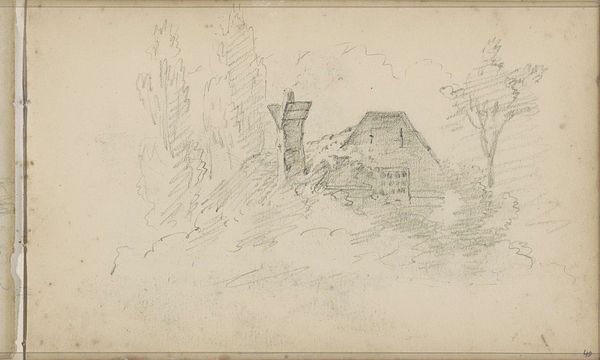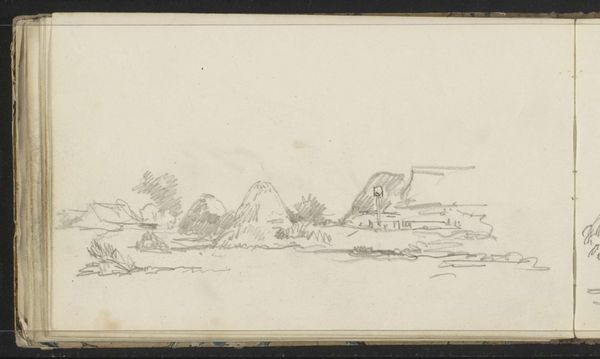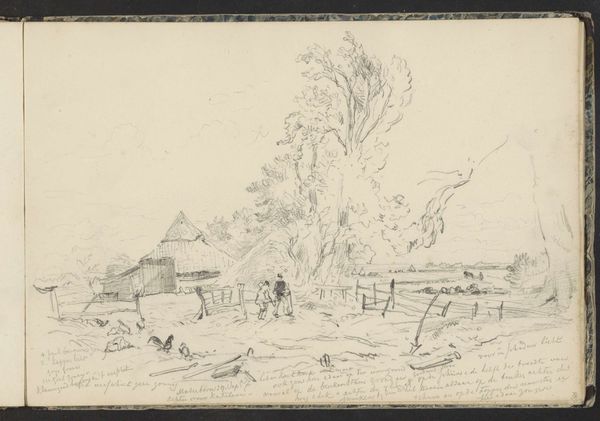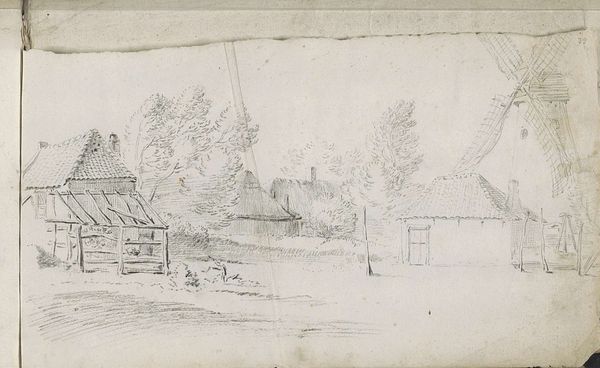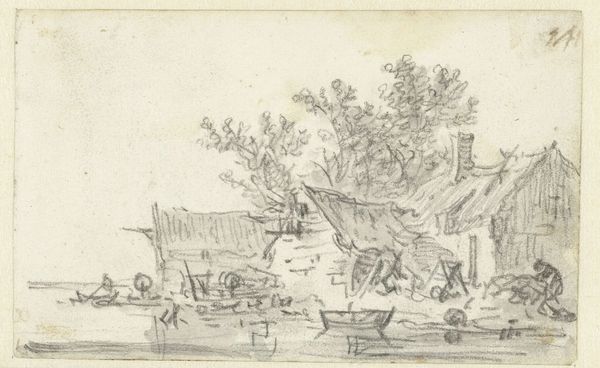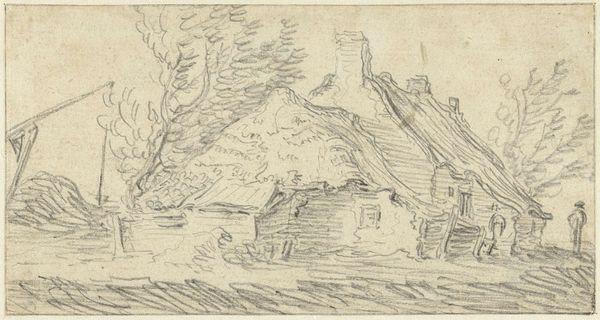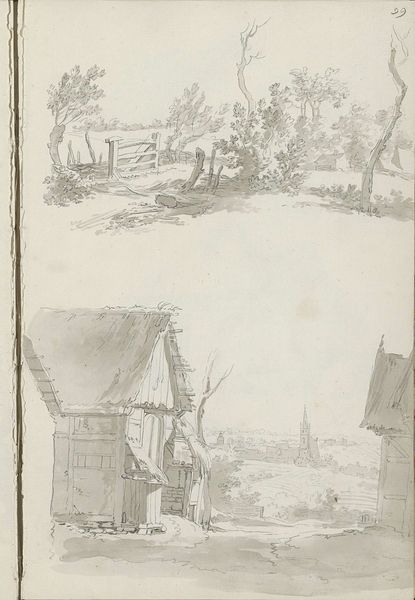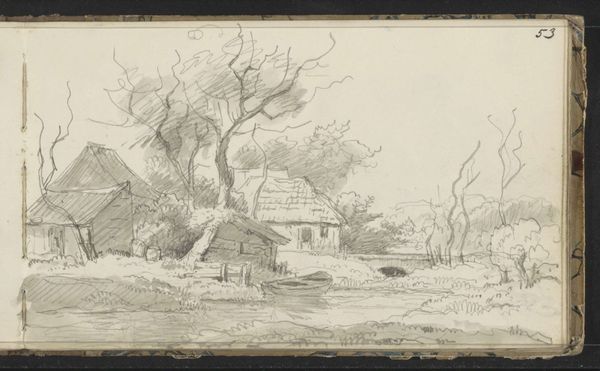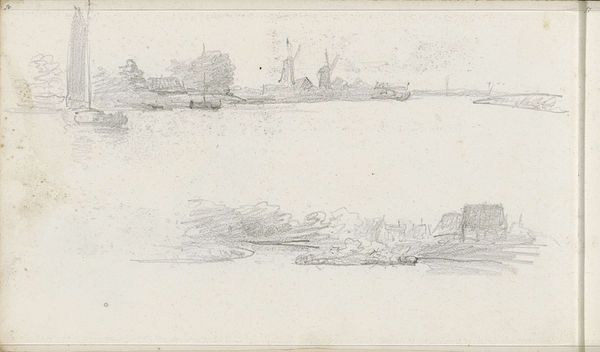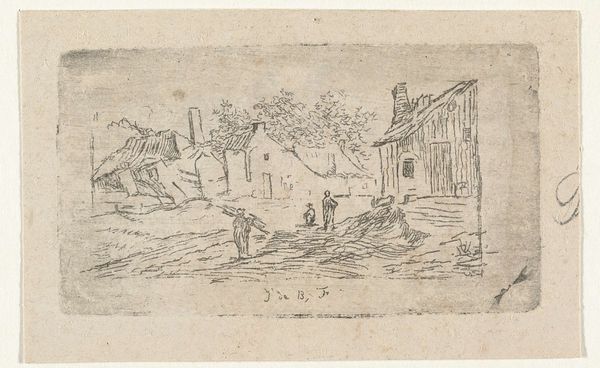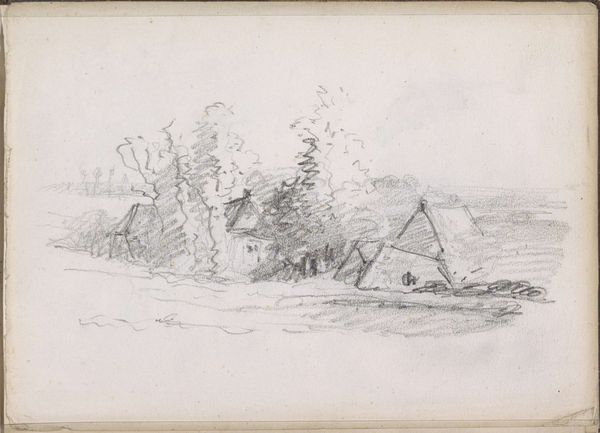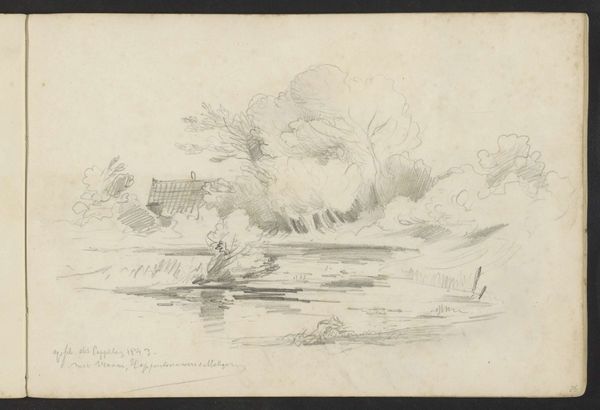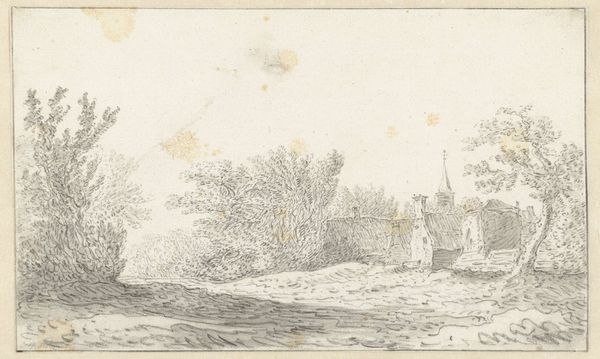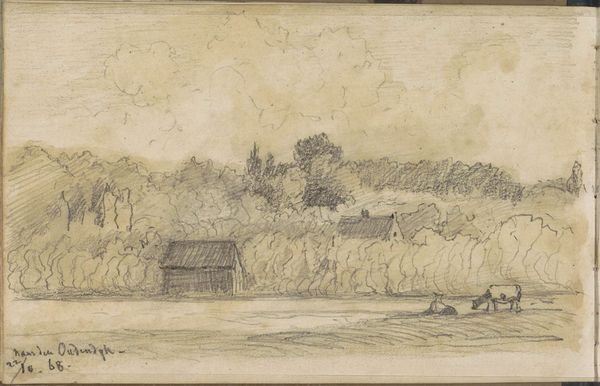
drawing, pencil
#
drawing
#
16_19th-century
#
landscape
#
pencil
#
realism
Dimensions: height 142 mm, width 218 mm
Copyright: Rijks Museum: Open Domain
Willem Cornelis Rip made this drawing of a farmhouse with a thatched roof using graphite on paper. Rip was part of the Hague School, a group of Dutch artists working in the late 19th century. The Hague School artists rejected the grandiose style of Romanticism and instead focused on simple, rural scenes that reflected the everyday lives of ordinary people. The art market at the time was dominated by academic painting, which was often seen as stuffy and out of touch with the realities of modern life. The Hague School artists challenged this status quo by creating art that was more accessible and relatable to a wider audience. To truly understand this drawing, we need to examine the social and cultural context in which it was made. By delving into archives and historical accounts, we can gain a deeper understanding of the values and beliefs that shaped Rip's artistic vision. Art history is not just about aesthetics.
Comments
No comments
Be the first to comment and join the conversation on the ultimate creative platform.
